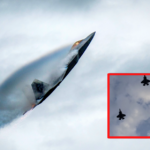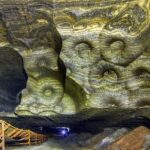A military base deep in Western China is unusually active when foreign satellites are overhead—a sign that Beijing could be using laser weapons to electronically probe them. The Korla East Test Site, located in Xinjiang province, is believed to be home to at least two Chinese laser weapons. The U.S. government believes China is practicing to take away its huge advance in satellite technology, damaging or even hijacking military satellites to deny them in wartime.

Nullifying an Advantage
According to Army Technology, the Korla East Test Site houses two laser weapons, and the weapons are most active at “solar noon,” or the moment the sun is positioned due south of the test-site lasers. Solar noon is an advantageous time for spy and other imaging satellites in sun-synchronous orbit, an orbital path that runs north-south over the North and South Poles. A spy satellite in sun-synchronous orbit can image the same spot at solar noon, every day, with maximum sunlight over the area on Earth being imaged. This is useful not only for maximum image clarity, but also for observing day-to-day changes.
The laser weapons were originally built as anti-satellite (ASAT) weapons. China’s military has studied recent Western military campaigns, particularly American ones, and concluded that military satellites grant a huge advantage in modern war-fighting. Spy satellites can peer deep into China, while GPS satellites allow Western forces to easily navigate thousands of miles from home. Military communications satellites allow air, land, and naval forces operating in the most remote corners on Earth to communicate with the Pentagon and other headquarters in real time. Degrading or destroying this capability would hamper the ability of foreign forces to operate in China’s backyard, particularly Taiwan.
 U.S. Army communications specialists set up a satellite dish in El Salvador, 2021. Satellite communications ensure that that U.S. military headquarters can, if necessary, stay in contact with subunits on the other side of the planet.
U.S. Army communications specialists set up a satellite dish in El Salvador, 2021. Satellite communications ensure that that U.S. military headquarters can, if necessary, stay in contact with subunits on the other side of the planet.
A recent report from the Secure World Foundation says that China has been pursuing directed-energy anti-satellite (“counterspace”) weapons since the 1960s. It states there are three anti-satellite laser facilities spread across the country, including the one at Korla. The ground-based lasers are reportedly part of the People’s Liberation Army Strategic Support Force, a branch of the Chinese military responsible for “strategic” non-nuclear functions, including military space, cyberspace, electronic warfare, information warfare, and psychological warfare. This makes sense, as neutralizing or hijacking enemy satellites would have strategic consequences in wartime.

The report mentions a series of incidents in 2006 in which Chinese ground-based lasers “dazzled” U.S. satellites, a claim that was later walked back to merely illuminating them with laser energy. At the time, the director of the National Reconnaissance Office stated that the laser firings “did not materially damage the U.S. satellite’s ability to collect information.” At the same time, however, the laser shots did signal an intent to target American satellites in wartime.
The activity at Korla may be what the U.S. intelligence community was referring to in documents an Air Force National Guardsman recently leaked on Discord. According to the Financial Times, the documents stated China was building the capability to “seize control of a satellite, rendering it ineffective to support communications, weapons, or intelligence, surveillance, and reconnaissance systems.” Seizing control of a satellite would be an action short of war that would not warrant military retaliation, while still rendering the satellite as good as destroyed.
The Takeaway
China’s development of anti-satellite weapons is aimed, like a laser, at eviscerating the U.S. military’s ability to fight at long ranges. The Pentagon must ensure that its vast constellation of military satellites can resist a spectrum of negative attention, from tampering to destruction and everything in between. A Beijing confident it can outmaneuver Washington in space could be enticed into using that capability to make gains on the ground.












